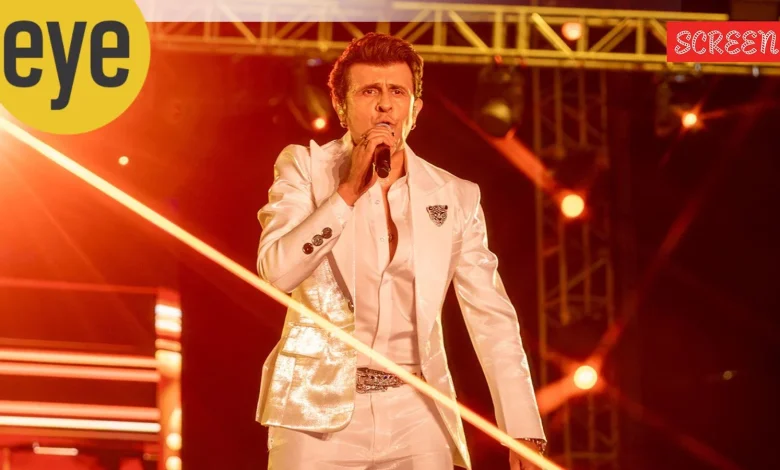‘AI should be treated as an assistant not your boss’: Sonu Nigam on technology and creativity

Popular playback singer Sonu Nigam’s recent performance at Kashmir’s Sher-i-Kashmir International Convocation Complex (SKICC) with the picturesque Dal and the majestic Zabarwan Mountains as the backdrop was the first such event since the Pahalgam attack in the Valley. A tribute to Mohommad Rafi as well as Kashmir, it saw Kashmir Chief Minister Omar Abdullah stay away from the concert amid calls for boycott while Lieutenant Governor Manoj Sinha supported it, adding that it would “boost tourism” in the Valley. Nigam’s video of stopping his concert for the evening azaan to take place was appreciated and went viral while a social media debate had ensued about Nigam’s 2017 comments about loudspeakers used by mosques, temples and gurudwaras as “forced religiosity”.
This month, Nigam embarked upon his seven-city ‘Satrangi Re’ tour organised by NR Talent & Event Management and BookMyShow. The tour will begin in Mumbai and will be performed in Hyderabad, Kolkata, Pune, Ahmedabad, Shillong and Delhi. Excerpts from an interview:
After performing for so many years on some of the biggest stages across the world, what continues to drive you to get on the road for a tour?
Story continues below this ad
All truly passionate artistes know that we live for that direct connection with our audience. A concert is more than a performance — it’s a reunion with your extended musical family. Satrangi Re is a concept that has been curated with great care and sensitivity for true music aficionados. It represents a new chapter for me as well — a next-level concert experience, even after performing at thousands of shows around the world.
Congratulations on receiving the 40th Lata Mangeshkar Award. What does this recognition mean to you at this stage of your career?
Awards are like gifts — they bring joy when we receive them. But I’ve never believed they define or represent who we are as artists. That said, receiving the Lata Mangeshkar Award feels truly special — it’s like getting a pat on the back from your guru, a sign of encouragement and blessing to continue your journey with humility and dedication.
Your new single, Kahani Meri, which combines Hindustani and Carnatic music styles, feels like an introspective piece. What drew you to record it?
Story continues below this ad
Kahani Meri was my gift to myself and to my listeners on my birthday this year. It’s something very different from what’s currently happening in the music space — something that truly stands out. From its melody to the singing and visuals, everything about it reflects a sense of purity and individuality. I’m very happy to have been part of this beautiful creation.
You’ve been a defining voice in Indian playback for three decades. How do you view the playback industry today, and what do you think has changed the most for singers?
The music industry — especially film music — is evolving at a tremendous pace. Every year brings new and incredibly talented composers, lyricists, and singers who add a refreshing energy to the space. This constant evolution keeps the industry vibrant and exciting.
In today’s world, with AI changing how music is made, how do you think it impacts the creative process — especially when we now hear AI recreating Rafi saab and Kishore Kumar’s voices?
Story continues below this ad
AI should be treated as an assistant, not as your boss. It’s a tool that can support creativity, but it should never replace the human soul that gives music its true essence.
With music consumption now driven by algorithms, do you think Indian playback singing risks losing its emotional depth in the race toward streaming trends?
Music consumption being driven by algorithms is something I’m still trying to fully understand. Honestly, it’s too early to say what long-term impact it might have. For now, I find that algorithms recommend music I’m genuinely inclined towards — so I don’t see it as a problem yet. We’ll have to wait and watch how it evolves.
You’ve witnessed the industry transition from cassettes to Spotify. What’s one thing you miss most about the old music world?
Story continues below this ad
Back then, listeners made an effort to go out and buy music. That act of choosing and owning an album was deeply personal. People weren’t guided by trends or algorithms — they listened to what truly resonated with them. That kind of genuine, self-driven connection to music is something I deeply miss.
Expand
© The Indian Express Pvt Ltd





